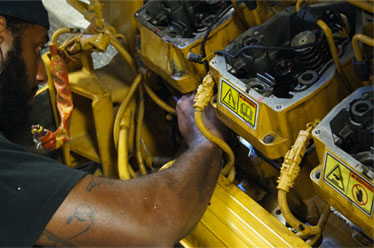Preventative Maintenance

Generators require periodic (PM) preventative maintenance to ensure long-term, trouble-free operation. Early detection can identify small problems before they become major repair costs. It is essential that your generator will start when you need it. A preventative maintenance plan will eliminate any doubt when your generator is needed.
MnI offers 24-hour emergency generator and preventative maintenance agreements for every make and model generator and switchgear no matter what size or fuel type. We also offer load bank testing from 5kw to 2000kw and above. We can perform a load test to check the performance of the engine and generator set while monitoring and measuring coolant temps, oil temps, voltage, amps, available KW output and generator temps.
Our comprehensive annual planned maintenance (PM) programs can be scheduled every month, 3 months, 6 months, or 12 months and can include:
- 79-point inspection report
- Air Filter Replacement
- Fluid and Filter Changes
- Load Bank and Electrical Testing
- Lube Oil and Lube Oil Filter Changes
- Generator and (ATS) Rentals
- Engine Coolant Testing
- Diesel Fuel Cleaning and Filtering
- Waste Disposal
- Lube Oil, Fuel and Coolant Analysis
Load Bank Testing
Load Bank Testing is the only way to determine if your system is capable of handling the required electrical load when needed. Here are a few reasons why you should protect your system with Load Bank Testing:
By actually drawing power from the generator, Load Bank testing will test your system's capability without interrupting standard utility services to your facility or home.
This test exercises your generator. Standard exercising, starting the unit and running the motor with no load transfer, only exercises the motor. Load Banking is the only true way to exercise the entire generator.
The test removes moisture and cleans carbon deposits out of the exhaust system and turbochargers.
Load Bank testing is required by law in accordance with the National Fire Protection Association Code 110, "Standard for Emergency and Standby Power Systems" where life safety electrical power needs is involved.